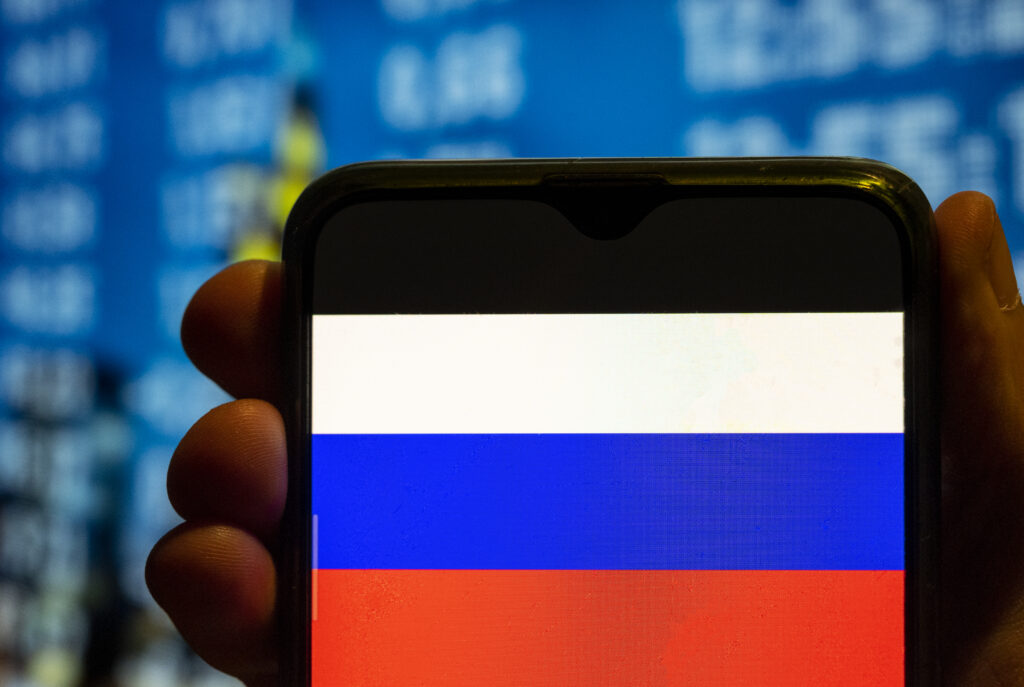Vladimir Putin has committed serious resources to ensure that the Russian people only see what he wants them to see. Yet despite the best efforts of the Russian dictator, the ever-evolving world of Big Tech offers a variety of avenues for free expression, even in closed societies. But without the right policy structures, Big Tech can be exploited to aid the designs of authoritarian rulers like Putin, making it crucial to spur discussions between Russian civil society and tech companies to avoid this outcome.
Tech companies are crucial to disseminating information, organizing platforms, creating fundraising tools, and recording war crimes and human rights abuses. As a result, their actions profoundly impact social and political issues in many countries.
Ongoing efforts to deliver accurate information to the Russian people illustrate these new realities. The Kremlin tightened censorship after the full-scale invasion of Ukraine in February 2022 to make sure the only information Russian citizens receive is state-controlled propaganda. Independent Russian media and civil society groups opposing the war face persecution and censorship on a scale not seen since the days of the Soviet Union.
As a result of this crackdown, international social media platforms and communication technologies became just about the only way to deliver factual information to Russians inside the country, and to inform the international public on the situation in Russia.
Western tech companies initially took steps to comply with international sanctions against Russia and to mitigate the spread of Kremlin-backed disinformation. However, new research suggests this effort has had the unintended consequence of significantly hindering independent media and civil society efforts inside Russia.
Stay updated
As the world watches the Russian invasion of Ukraine unfold, UkraineAlert delivers the best Atlantic Council expert insight and analysis on Ukraine twice a week directly to your inbox.
Out of a group of 16 independent Russian media and civil society organizations (CSO) featured in recent research, all experienced negative impacts to their online presence after the Russian invasion of Ukraine, with 14 reporting periodical sharp decreases in traffic and social media engagement.
These organizations saw an abrupt fall or lack of change in viewership, followers, subscribers, and engagements on some platforms, all while growing on others. Suddenly, content that generated substantial interest in the past was not getting any attention, while posts, videos, or even entire channels that were attracting significant engagement suddenly vanished from recommendation features.
Researchers believe that independent Russian media websites may have been deprioritized or omitted in Google search results and the Google Discover service, which inadvertently led to the amplification of Kremlin propaganda by directing millions of Russians to anti-Ukrainian and anti-Western messaging every day. This aligns with data recently published by Lev Gershenzon, one of the former heads of Yandex News, Russia’s largest search engine, now fully controlled by the state.
According to Gershenzon, Google Discover’s content recommendation system features Kremlin-affiliated sources high up in its recommendations. Close to 90 percent of Russian smartphones operate with Android, with Google products pre-installed by default, so Google has unprecedented influence over the content Russians view every day.
Eurasia Center events

Eleven of the 16 groups cited claim to have lost access to essential Western software, tools, and equipment, and experienced restricted access to certain online advertising services. After their outlets were outlawed and Russian providers canceled their services, four of these groups said they could not find a Western hosting service, and several noted that one mass email service abruptly closed all of its Russian accounts. As a result, many Russian independent media and CSOs lost entire databases of readers, supporters, and donors.
Meanwhile, the online collaboration platform Slack shut down while Adobe, Windows, and Microsoft Office also left Russia. The resulting lack of access to basic online tools has proven challenging for Russia’s already-embattled independent voices.
While most of these groups attempted to contact companies to find solutions to their lack of access, few cases were resolved. No matter the outcome, the circuitous and demoralizing process of even getting an answer from decision makers at Western tech companies has proven to be a significant obstacle to addressing these issues.
The resulting status quo has, albeit unintentionally, reinforced the power imbalance between Russia’s pro-democracy actors and the country’s authoritarian government by depriving an increasingly isolated society of its few remaining independent sources of information. To overcome this impasse, there is an urgent need for dialogue between Western tech companies, Russian media, and civil society.
Joanna Nowakowska, Anna Kuznetsova, and Marta Bilska from the International Republican Institute are co-authors of the recent report “Can Big Tech Contribute to Breaking Putin’s Censorship?”
Further Reading
The views expressed in UkraineAlert are solely those of the authors and do not necessarily reflect the views of the Atlantic Council, its staff, or its supporters.

The Eurasia Center’s mission is to enhance transatlantic cooperation in promoting stability, democratic values and prosperity in Eurasia, from Eastern Europe and Turkey in the West to the Caucasus, Russia and Central Asia in the East.
Follow us on social media
and support our work
Image: The Russian Federation flag displayed on a smartphone screen. (Photo by Budrul Chukrut / SOPA Images/Sipa USA)




